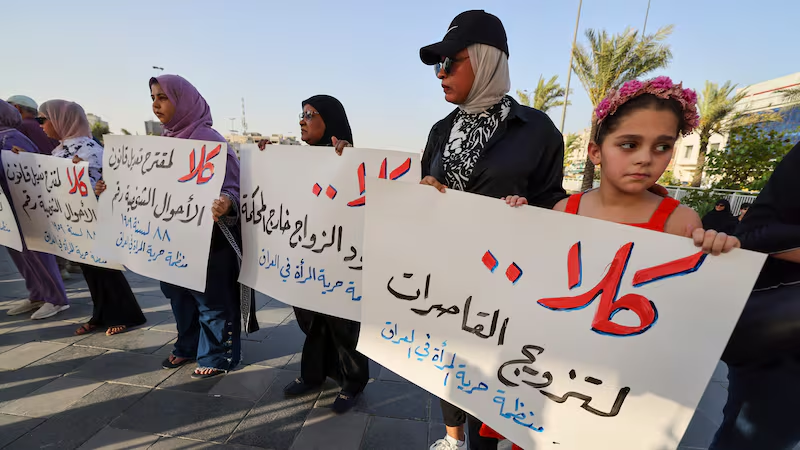
Iraq is facing a wave of protests and international condemnation over a proposed law that would lower the legal marriage age for girls to just 9 years old. Introduced by the Iraq Justice Ministry, the bill seeks to amend the nation’s Personal Status Law, which currently sets the minimum age for marriage at 18. If passed, the law would grant religious authorities the power to govern family affairs, including marriage, divorce, and child custody, effectively rolling back decades of progress on women’s rights and gender equality.
The proposal has sparked widespread outrage among human rights organizations, women’s rights groups, and civil society activists. Critics argue that lowering the marriage age would lead to a surge in child marriages, exploitation, and abuse, particularly in a country where 28% of girls are already married before the age of 18, according to UNICEF. Opponents warn that the bill would “legalize child rape” and deepen gender inequality in a society already struggling with conservative social norms.
“This law would steal the futures of countless young girls, forcing them into marriages when they should be in school or playing with friends,” said Sarah Sanbar, a researcher with Human Rights Watch. Activists also fear that the law would exacerbate issues such as early pregnancies, school dropouts, and domestic violence.
Despite these concerns, the bill has found support among powerful Shia blocs in parliament, who argue that the amendment is necessary to align the legal system more closely with Islamic law. Proponents claim that the law will protect young girls from “immoral relationships” and provide greater religious oversight in family matters. However, critics say this justification ignores the harsh realities of child marriage and the potential harm to young girls.
The proposed changes would mark a significant shift from Iraq’s 1959 legislation, which transferred authority over family law from religious figures to the state judiciary. By reintroducing religious oversight, the bill could undermine the principle of equality under Iraqi law, critics argue.
As the debate rages on, the future of the bill remains uncertain. It was initially withdrawn after facing opposition in late July but resurfaced in parliament in early August with renewed backing. The proposal has ignited a fierce public discourse on the rights of women and children in Iraq, with many fearing that the country is on the verge of regressing in its commitment to human rights.






Be First to Comment